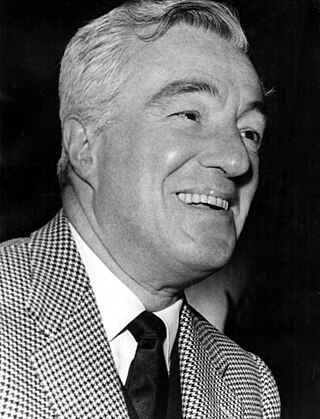
Vittorio De Sica was an Italian film director and actor, a leading figure in the neorealist movement.
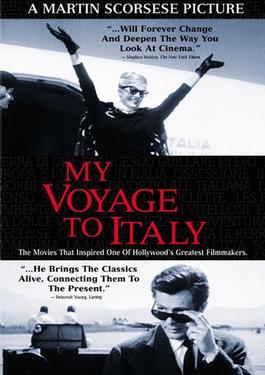
My Voyage to Italy is a personal documentary by acclaimed Italian-American director Martin Scorsese. The film is a voyage through Italian cinema history, marking influential films for Scorsese and particularly covering the Italian neorealism period.

Tragedy of a Ridiculous Man is a 1981 Italian film directed by Bernardo Bertolucci. It stars Anouk Aimée and Ugo Tognazzi, who was awarded the Best Male Actor Award at the 1981 Cannes Film Festival for his performance. In his review, Vincent Canby describes the film as, "Bernardo Bertolucci's very good, cerebrally tantalizing new film, Tragedy of a Ridiculous Man, the story of what may or may not be a terrorist kidnapping of the sort that has been making Italian headlines with increasing frequency in recent years."

Pietro Germi was an Italian film director, screenwriter, and actor, noted for his development of the neorealist and commedia all'italiana genres.

The Profession of Arms is a 2001 Italian film directed by Ermanno Olmi.

Aldo Fabrizi was an Italian actor, director, screenwriter and comedian, best known for the role of the heroic priest in Roberto Rossellini's Rome, Open City and as partner of Totò in a number of successful comedies.

The Gold of Naples is a 1954 Italian anthology film directed by Vittorio De Sica. It was entered into the 1955 Cannes Film Festival. In 2008, the film was included on the Italian Ministry of Cultural Heritage’s 100 Italian films to be saved, a list of 100 films that "have changed the collective memory of the country between 1942 and 1978."

Scent of a Woman is a 1974 Commedia all'italiana film directed by Dino Risi, based on Il buio e il miele, a story by Giovanni Arpino. Both Risi and the leading actor Vittorio Gassman won important Italian and French awards.

Under the Sun of Rome is a 1948 Italian drama film directed by Renato Castellani. It was the first film of Castellani's Italian neorealism trilogy about poor people, followed by È primavera... in 1949 and Cannes Film Festival Palme d'Or winner Two Cents Worth of Hope in 1952.
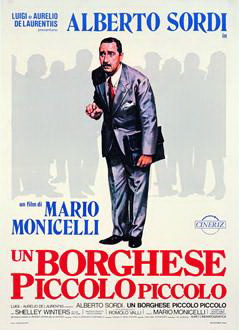
An Average Little Man is a 1977 Italian drama film directed by Mario Monicelli. It is based on the novel of the same name written by Vincenzo Cerami. The movie mixes "Italian-Style Comedy" with psychological drama tragedy. The film was an entrant in the 1977 Cannes Film Festival. In 2008, the film was included on the Italian Ministry of Cultural Heritage’s 100 Italian films to be saved, a list of 100 films that "have changed the collective memory of the country between 1942 and 1978."
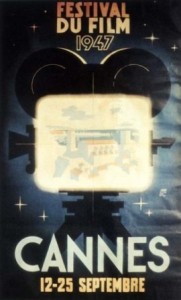
The 2nd Cannes Film Festival was held from 12 to 25 September 1947. The new building that was meant to host the festival, the Palais du Festival, was still not ready, and the festival was held amid many technical and financial problems. In 1947, the entire jury of the Festival were French. Six awards were given to films of different categories.
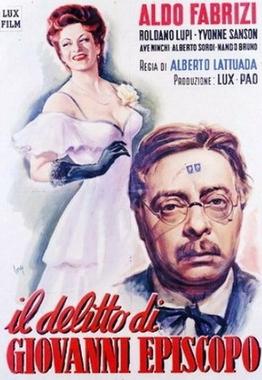
Flesh Will Surrender is a 1947 Italian drama film directed by Alberto Lattuada. It is based on the novel Giovanni Episcopo by Gabriele D'Annunzio. It was entered into the 1947 Cannes Film Festival.
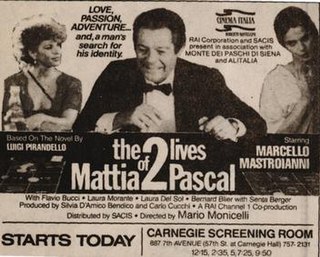
The Two Lives of Mattia Pascal is a 1985 Italian drama film directed by Mario Monicelli. It was adapted from the novel Il fu Mattia Pascal by Luigi Pirandello. It was entered into the 1985 Cannes Film Festival.

A Leap in the Dark is a 1980 Italian film written and directed by Marco Bellocchio. It stars Michel Piccoli and Anouk Aimée, who won the Best Actor and Best Actress prizes respectively at the 1980 Cannes Film Festival. The film also won the David di Donatello for Best Director and was selected as the Italian entry for the Best Foreign Language Film at the 53rd Academy Awards, but was not accepted as a nominee.

The Pool Hustlers is a 1982 Italian comedy drama film directed by Maurizio Ponzi. It was screened in the Un Certain Regard section at the 1983 Cannes Film Festival. It was co-written by Ponzi, male lead Francesco Nuti and established screenwriters Franco Ferrini and Enrico Oldoini. The symbolic names of the characters mentioned in the Italian title, "Chiara" and "lo Scuro", mean "Bright" or "Clear", and "the Dark One" or "the Darkness", respectively.

I Prefer the Sound of the Sea is a 2000 Italian-French drama film directed by Mimmo Calopresti. It was screened in the Un Certain Regard section at the 2000 Cannes Film Festival.
The Words of My Father is a 2001 Italian drama film directed by Francesca Comencini. It was screened in the Un Certain Regard section at the 2001 Cannes Film Festival.

Mia madre is a 2015 internationally co-produced drama film directed by Nanni Moretti. It was selected to compete for the Palme d'Or at the 2015 Cannes Film Festival. It was screened in the Special Presentations section of the 2015 Toronto International Film Festival.

Sara Serraiocco is an Italian actress, best known for playing Baldwin in the TV series Counterpart.

The Traitor is a 2019 internationally co-produced biographical crime drama film co-written and directed by Marco Bellocchio, about the life of Tommaso Buscetta, the first Sicilian Mafia boss who was treated by some as pentito. Pierfrancesco Favino stars as Buscetta, alongside Maria Fernanda Cândido, Fabrizio Ferracane, Fausto Russo Alesi and Luigi Lo Cascio.



















